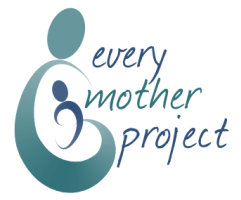Because of your profession and the relationship you have with your client, you may be the first person to notice that she needs help -- whether you see her in your office, her home, or your studio. In fact, she may speak to you in a way that she would not speak to a medical or mental health care provider, and you may see a slice of her life that a medical or mental health provider never would.
Know that your work with a new or expectant mother likely:
Know that your work with a new or expectant mother likely:
- lasts longer than a doctor's office visit
- may be the only type of care she is receiving, particularly in the earliest days when she's been discharged from a hospital birth, as well as after week 6, when she will typically see her doctor or midwife for a check-up and then not again until she needs an annual visit or becomes pregnant again
- may feel less stigmatizing, as she may be seeking your services for help with the baby or as a gesture of self-care
Nearly 1 in 5 women will experience depression or anxiety during pregnancy and/or the year after birth.
You've probably had clients you've been concerned about.
Trust your instincts.
Emotional complications are the most common complication of childbirth.
You don't need to be a trained mental health clinician to discuss your concerns with your clients.
You may just need some guidance and resources so that you can approach them compassionately and knowledgeably.
The Every Mother Project's Perinatal Toolkit can give you the resources and information you need.
You may just need some guidance and resources so that you can approach them compassionately and knowledgeably.
The Every Mother Project's Perinatal Toolkit can give you the resources and information you need.
The toolkit has helped raise my own awareness of how to look for and identify mental health problems in my perinatal population. I will be using the suggested language to initiate more conversations with my clients.


